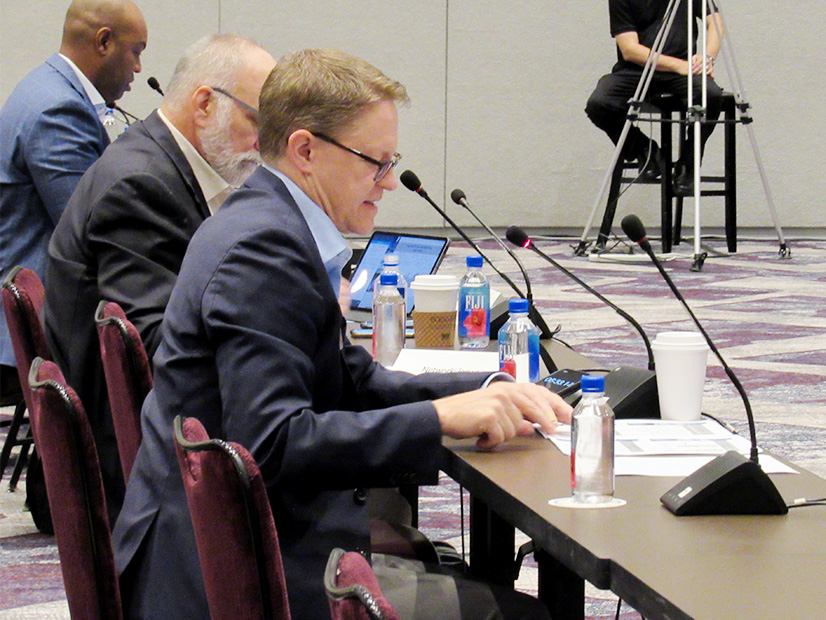
ORLANDO, Fla. — MISO is raising the alarm over scarce fuel and increased forced outages should a severe arctic blast descend on the footprint.
Speaking Tuesday before the Markets Committee of the MISO Board of Directors, Renuka Chatterjee, executive director of system operations, said the grid operator expects anywhere from 36 to 50 GW in generation outages under an extreme winter scenario. MISO expects a 101-GW system peak this January and 108 GW in available capacity to meet the demand. (See MISO Warns of January Emergency Procedures.)
“Risk has increased beyond frozen coal piles this winter,” Chatterjee said, noting that coal suppliers have downsized their inventory. She also said gas storage is at relatively low levels nationwide.
Staff said up to 20 GW in natural gas generation is at risk because of non-firm transport arrangements, and another 11 GW of coal generation could become unavailable because generation owners haven’t fully contracted their winter supply. Natural gas prices in MISO have essentially doubled since late 2020, while coal costs have risen about 15%.
Chatterjee also said available wind generation could swing from 4 GW to 15 GW this winter.
“In light of the fuel risks this winter, MISO is asking members to help provide more visibility into their situation,” Chatterjee said.
The RTO has asked members with coal or gas availability concerns to reach out to both the grid operator and its Independent Market Monitor. It is also asking affected members to complete a weekly coal or fuel oil generator survey so staff can “assess and manage risk.”
“I urge continued vigilance on this. The reports on fuel security are concerning,” MISO Director Nancy Lange said.
MISO Executive Director of Market Operations Shawn McFarlane said in November that “arctic weather of some length” would carry system reliability risks.
Staff has concluded they will be forced to rely on non-firm imports from its neighbors to avoid load shed should punishing winter weather materialize.
“If PJM has a bad day the same day we’re having a bad day, the country will have a bad day,” MISO President Clair Moeller explained to board members. He said that under the normal nature of cold fronts, staff can rely on PJM imports because both systems don’t experience weather hardships simultaneously.
The Monitor’s David Patton said as MISO moves into wintertime, coal generation serves as an important backstop when gas pipelines fail. He said coal supply chain risks are concerning. He also predicted the RTO won’t see $2/MMBtu natural gas prices for quite some time.
“I was happy to see MISO identified this as a new risk because that is certainly a risk,” Patton said.
But Patton again lambasted “near-zero” per megawatt-day capacity prices in the 2021-22 planning year. (See MISO Capacity Auction Values South Capacity at a Penny.)
“If reliability is in fact an imperative, this market is not helping us,” he told board members.
Chatterjee said it’s becoming increasingly difficult to operate the system with intermittent resources growing share of the fuel mix while the system is beleaguered with extreme weather events.
MISO set a new all-time wind output record of 22 GW on Nov. 12. That accounted for 29% of the RTO’s demand.
Patton also said MISO’s congestion costs in 2021 are approaching $2 billion, an unprecedented amount. Chatterjee said that can be chalked up to February’s winter storm and this year’s higher natural gas prices.

